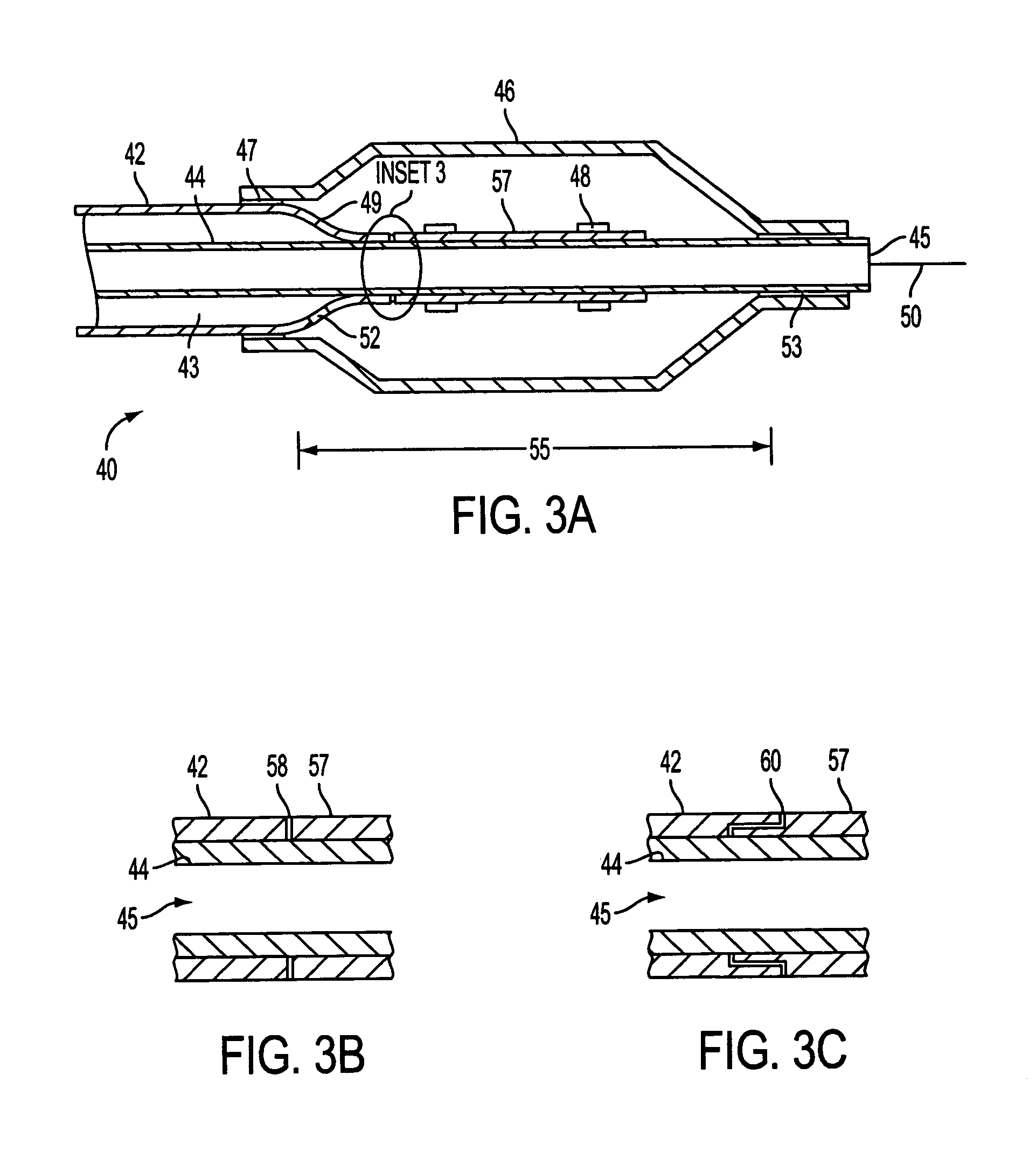Catheter having enhanced distal pushability
- Summary
- Abstract
- Description
- Claims
- Application Information
AI Technical Summary
Benefits of technology
Problems solved by technology
Method used
Image
Examples
Example
[0023]Referring to FIG. 1, a previously-known balloon catheter from U.S. Pat. No. 5,492,532 to Ryan et al. (Ryan) is described. Catheter 20 comprises outer tube 22, inner tube 24, and balloon 26 having proximal and distal ends, the proximal end of balloon 26 being affixed to outer tube 22 at proximal affixation point 27 and distally affixed to inner tube 24 at point 29. Outer tube 22 and inner tube 24 are provided in a coaxial alignment, such that inflation lumen 23 communicates with balloon 26 while guidewire lumen 25 allows catheter 20 to be advanced over a guidewire.
[0024]One drawback associated with this previously-known design is that outer tube 22 terminates at proximal affixation point 27. Consequently, the segment distal to outer tube 22 will be susceptible to kinking when the distal end of catheter 20 is advanced into a tight stenosis. The push force provided at the proximal end of catheter 20 may not be fully transmitted to the distalmost end of catheter 20, in part becaus...
PUM
 Login to View More
Login to View More Abstract
Description
Claims
Application Information
 Login to View More
Login to View More - R&D
- Intellectual Property
- Life Sciences
- Materials
- Tech Scout
- Unparalleled Data Quality
- Higher Quality Content
- 60% Fewer Hallucinations
Browse by: Latest US Patents, China's latest patents, Technical Efficacy Thesaurus, Application Domain, Technology Topic, Popular Technical Reports.
© 2025 PatSnap. All rights reserved.Legal|Privacy policy|Modern Slavery Act Transparency Statement|Sitemap|About US| Contact US: help@patsnap.com



